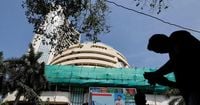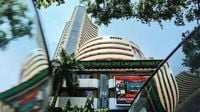The Indian stock market will be closed on Monday, March 31, 2025, in observance of Eid-Ul-Fitr (Ramzan Id), marking a significant holiday for traders and investors alike. As the markets prepare for this festive occasion, they will resume regular operations on Tuesday, April 1, 2025, following an extended weekend.
Both the Bombay Stock Exchange (BSE) and the National Stock Exchange (NSE) will not conduct any trading or settlement activities on March 31, which includes stocks, derivatives, and securities lending and borrowing (SLB) segments. This closure is part of the official calendar, which designates public holidays to allow traders to celebrate without concerns about market fluctuations.
With March 29 (Saturday) and March 30 (Sunday) already designated as holidays, the closure on March 31 provides traders with a well-deserved break, extending their weekend. Investors and traders are encouraged to plan their transactions accordingly to avoid disruptions.
Eid-Ul-Fitr, also known as Ramzan Id, is a significant Islamic festival that marks the end of Ramadan, a month dedicated to fasting, prayer, and reflection. The festival is celebrated with feasts, charitable acts, and community gatherings, symbolizing gratitude and spiritual fulfillment. It is a time when families come together to share meals and express their appreciation for the blessings received during the month of fasting.
In addition to the observance of Eid-Ul-Fitr, the Indian stock market will observe three more holidays in April 2025. These include:
- April 10 (Thursday): Shri Mahavir Jayanti
- April 14 (Monday): Dr. B.R. Ambedkar Jayanti
- April 18 (Friday): Good Friday
These holidays will also result in market closures on the respective dates, giving traders additional time off throughout the month.
The regular trading hours for the Indian stock market are from Monday to Friday, operating between 9:15 AM and 3:30 PM IST. A pre-opening session runs from 9:00 AM to 9:15 AM, allowing for a smooth market start. The markets remain closed on weekends, specifically Saturdays and Sundays.
On March 31, while the stock exchanges will be closed, the Multi Commodity Exchange (MCX) will operate on a modified schedule. The morning session will be closed, but trading will resume in the evening from 5:00 PM to 11:30/11:55 PM. In contrast, the National Commodity & Derivatives Exchange (NCDEX) will remain fully closed for the day.
Despite the stock market closure, banks, insurance companies, and income tax offices will remain open on March 31 to accommodate end-of-financial-year transactions. The Reserve Bank of India (RBI) has directed agency banks to facilitate government transactions on this public holiday, ensuring that taxpayers can complete necessary transactions without delay.
As the market prepares for this holiday, it is essential for investors and traders to stay informed about these dates and plan their activities accordingly. Being aware of upcoming market closures will help in managing portfolios and ensuring timely transaction completions.
In the lead-up to the holiday, the Indian stock market recently experienced notable activity. The BSE Sensex settled at 77,606.43, up 317.93 points or 0.41 percent from its previous close on Thursday, March 27, 2025. Meanwhile, the NSE Nifty50 also saw gains of 105.10 points or 0.45 percent, closing at 23,591.95. This positive momentum was largely driven by sustained incremental inflows and buying in blue-chip stocks, particularly in sectors such as public sector banks, oil and gas, and financial services.
However, it was not all smooth sailing. Auto stocks faced a sell-off following an announcement from U.S. President Donald Trump regarding a 25 percent tariff on imported cars and key auto parts, effective April 3. Additionally, pharmaceutical stocks continued to struggle, with the Nifty Pharma index extending its losing streak to a third consecutive day.
As the Indian stock market gears up for the holiday, traders and investors alike are reminded of the importance of planning ahead. With several holidays on the horizon, including significant observances like Eid-Ul-Fitr, it is crucial to stay informed and adapt strategies accordingly.
In summary, the stock market closure on March 31 for Eid-Ul-Fitr underscores the importance of recognizing cultural and religious observances within the financial industry. This holiday not only provides a break for traders but also highlights the significance of communal celebration and reflection during this festive time.
As the markets prepare to close for the holiday, traders are reminded to keep an eye on upcoming market holidays and plan their financial activities accordingly to ensure a smooth transition back into the trading environment on April 1, 2025.







